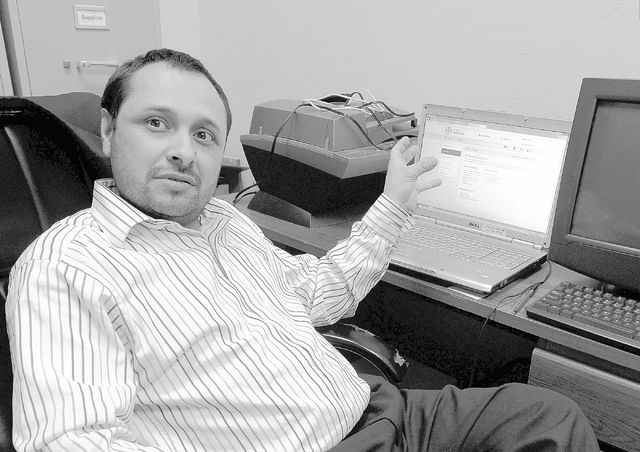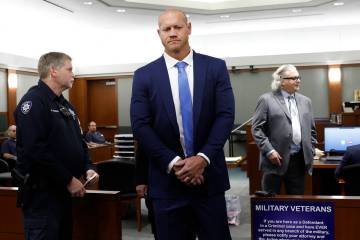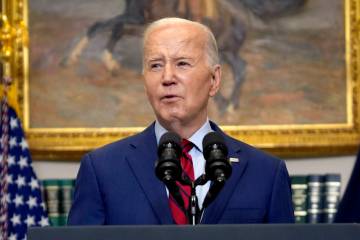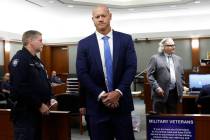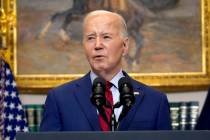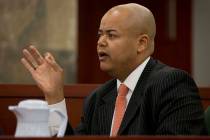Silver State Health Insurance Exchange still plagued by problems
Disappointing.
Difficult.
Atrocious.
That’s how local insurance brokers describe the first month of open enrollment through the Silver State Health Insurance Exchange. It hasn’t been easy to push applications into the system, they say. When they can get through, they’re seeing little actual enrollment, as consumers weigh staying with existing plans outside the exchange, or skipping coverage altogether.
If that trend continues, Nevada could see too few young, healthy people enroll, and the exchange might not generate enough revenue to fund itself.
As of Monday, the exchange reported 8,800 completed applications with eligibility for a federal tax credit determined, said spokesman CJ Bawden. Applications aren’t the same thing as actual enrollments, when people pay for coverage. Bawden said the agency won’t have enrollment numbers until Dec. 16, the day after the deadline to apply for coverage that takes effect Jan. 1. Exchange officials say they’re aiming for 118,000 enrollees in the first year.
Local brokers say that could be a tough goal.
The exchange’s website, at nevadahealthlink.com, remains the biggest hurdle to the system’s success, brokers say. They report frequent error codes, frozen pages and unwieldy questionnaires — if they can get through at all. Several brokers said it can take two hours to complete a single application if tax credits are involved.
“It seems like they’re working on things, but they haven’t fixed it yet,” said Nathan Udy, president of Omni Insurance Brokerage. “The process has been disappointing. We were told that, effective Oct. 1, we’d be able to help enroll people in the exchange. It’s Nov. 5, and we still don’t have a functioning website.”
The screens are “very redundant, and not user-friendly,” added Rick DiGregorio, an independent broker.
And Phil Randazzo, owner of Nevada Benefits, said last week that he has two computers in all of his brokers’ offices going at all hours to get through to the site.
“It’s hit-or-miss,” he said.
Bawden said exchange officials are aware of application problems, and consumers are reporting enrollment times of 30 minutes to two hours. He said the exchange applies patches to its website every Wednesday and Saturday from 10 p.m. to 2 a.m. to correct problems and improve functionality.
“The consumer experience is dramatically different today than it was on Oct. 1 and will continue to improve as new features and tools are added to the web portal over the next few months,” he said.
Even when brokers can get through, actual enrollment has proven underwhelming, they said.
Udy said he gets 20 calls a day for coverage, but he’s enrolling just one or two people a week. That’s because a lot of consumers are merely window-shopping — looking at premium costs and potential subsidies to compare plan prices and fines for lacking coverage.
Those who actually buy are mostly unhealthy or affluent. Udy said people who buy today often have health issues; DiGregorio added that higher-income shoppers who don’t qualify for a federal premium tax credit are also cutting checks today. DiGregorio said he’s enrolling about three people a week.
But Sandra Allan, a broker with GLB Insurance Group, said she hasn’t enrolled anybody through the exchange. She put together an exchange-based quote for a company with six employees, but the plans she found are all HMOs, and “people don’t want HMO plans,” she said. The company decided to stick with the coverage it already had.
The exchange “is not worth the effort at all,” Allan said.
Not everyone who manages to get new insurance through the exchange is buying private coverage, and that could create its own set of problems.
Randazzo said 80 percent of the calls he gets are from people eligible for the state’s newly expanded Medicaid program, which is for the first time accepting childless singles.
The problem with Medicaid enrollment is that brokers don’t get paid for guiding people into the program. Randazzo said he’s hired two additional people to help with the crush of enrollees, but if they’re mostly signing up for Medicaid, he may not be able to cover the added costs. Nor do Medicaid enrollees help fund the state exchange, which earns its revenue by charging 3 percent of premiums on private plans it sells.
Miki Allard, a spokeswoman for the state Division of Welfare and Supportive Services, said it’s too early to provide numbers on expanded Medicaid enrollment. She said 5,000 people applied for Medicaid in October, but that includes all qualified applicants, not just candidates for the expanded version. She said the program will begin processing new applications in November for coverage that starts in January. It’s looking for 68,000 enrollees under expanded Medicaid from Jan. 1 to June 30.
“The trials we have experienced with the (exchange) system have made this more challenging than we had hoped, but we are still working diligently to bring health care coverage to all who are eligible as quickly as possible,” Allard said.
If the exchange can fix its web woes, things may work out. Udy estimated he’d be enrolling 10 to 20 people a day if the glitches disappeared, though he added that some consumers pricing plans today might still decide to opt for a smaller fine for going without.
“We do have a lot of clients who are excited about getting on the exchange,” he said.
DiGregorio agreed there’s a market for the exchange’s plans, if people could actually buy them.
“The coverage isn’t bad. They’re good plans, and they get people insured,” DiGregorio said. “I know the rollout has been atrocious. However, on the other end, it’s going to help a lot of people in the next few years. It’ll work itself out. It always does. The most important thing is getting coverage for people who couldn’t get it previously.”
Contact reporter Jennifer Robison at jrobison@reviewjournal.com. Follow @J_Robison1 on Twitter.




